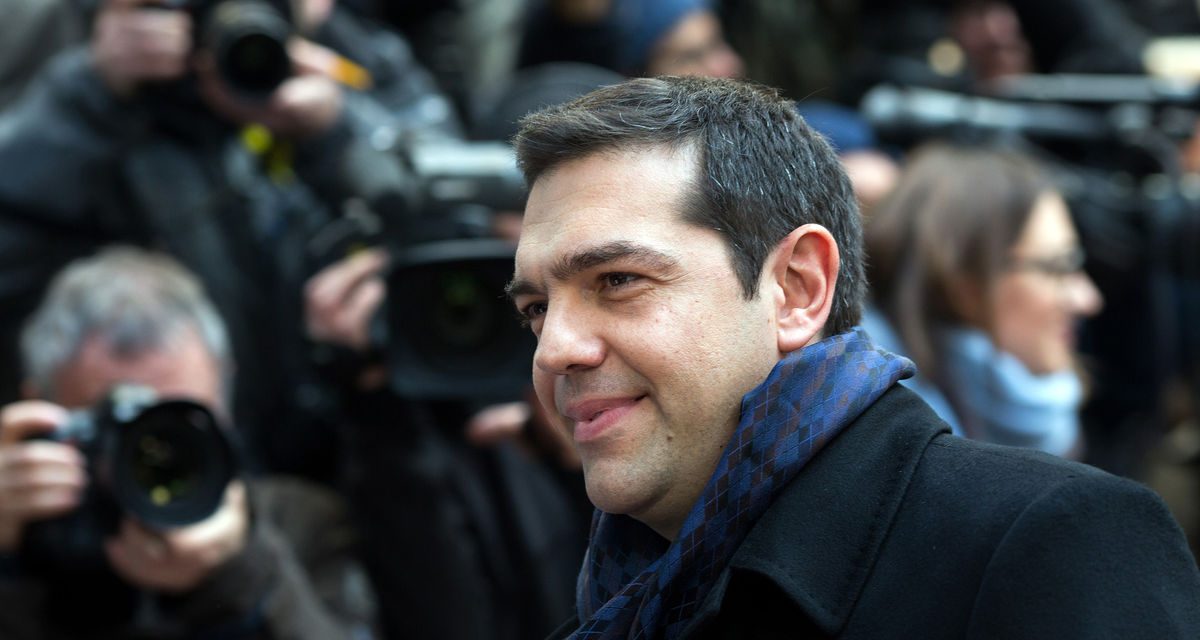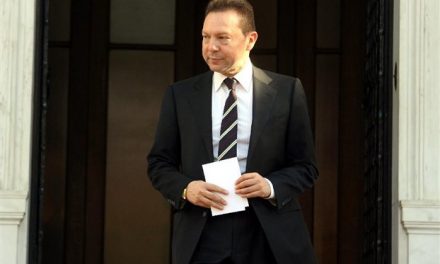Merkel says compromise is possible
By Sara Sjolin, Market Watch
With just two weeks before its current bailout program expires, eurozone finance ministers will meet Monday to take another stab at an agreement that will end a standoff between Greece’s new government and its international creditors.
Eurozone finance ministers held an emergency meeting on Wednesday, but after some initial confusion on whether a deal had actually been struck it became clear the Greek debt solution was—and still is—a work in progress.
The new Greek government has pledged to rip up the terms of its current bailout package and unravel many of the harsh austerity measures put in place following the country’s international rescue. So far, the lenders—consisting of the European Commission, the European Central Bank and the International Monetary Policy—have turned down Prime Minister Alexis Tsipras’ proposals, arguing Greece must stick to its commitments.
Here are the key things to know ahead of the Monday meeting:
Time pressure
Eurogroup President Jeroen Dijsselbloem implied last week that Greece needs to make a request by the Monday to get an extension to the bailout program that ends at February 28, in order for the national parliaments to approve an extension.
Greece needs such an extension to avoid running out of money to service its debt and fund its social programs, especially given the government’s plans to relax fiscal targets and increase public spending. However, the Tsipras-led coalition has stressed it won’t accept an extension under the current bailout terms and has instead called for a bridge loan to give Greece more time to renegotiate a deal.
Greece and its creditors started talks on Friday to try to establish common ground before Monday’s meeting, increasing chances of an interim deal. A spokesman for Tsipras said they “will do whatever we can so that a deal is found on Monday,” according to Reuters.
Bailout or no bailout extension
German Chancellor Angela Merkel said earlier this week that Greece must ask for the bailout extension or demonstrate that the conditions attached to that program can be implemented by the end of the month. Greek finance minister Yanis Varoufakis has said the government is willing to accept about 70% of the measures specified in the existing bailout agreement, so it is the last 30% that are up for negotiation.
Philip Shaw, chief economist at Investec, said in a note on Friday that “it should be easy to reach certain cosmetic compromises, especially if a bailout extension can get repackaged as a ‘bridging loan’”.
A senior EU official told Reuters that if the deadlock continues, Greece would have to apply for a new fully fledged bailout, which would be the country’s third rescue package.
Jockeying for position
Both Greece and its European partners have been positioning themselves ahead of Monday’s meeting.
Merkel said after meeting Tsipras at Thursday’s EU summit in Brussels that a compromise is possible, but reiterated her hard-line stance that Greece needs to keep its promises of sticking to the bailout conditions.
Meanwhile, Tsipras sounded upbeat after the meeting, saying “we didn’t cover the full distance, but we covered an important part and proved that the EU is a field of conflicts and compromises.”
The tone was less upbeat from European Commission President Jean-Claude Juncker:
Liquidity fears
The uncertainty hovering over Greece’s future in the eurozone has hit the country’s banks hard. In a decision that took effect Wednesday, the ECB earlier this month said it would no longer accept junk-rated Greek government debt as collateral for cheap funding, limiting the financing tap for the lenders.
However, the banks can still borrow money through the more expensive emergency liquidity assistance, or ELA. On Wednesday the ECB raised the amount of funding Greek banks can tap through the ELA by 5 billion euros ($5.7 billion), pushing the ceiling to €65 billion to ease pressure on the banking sector, according to media reports.
Greek banks currently see substantial daily outflows of capital as clients move their money to institutions that are considered more safe. Read: Greeks swiftly move capital to Germany as crisis looms
Grexit fears
The battle over Greece’s bailout program has brought fears of an eurozone exit back to fore. If the country and its creditors don’t reach an agreement on a bridge loan, an extension of the current program or some kind of debt restructuring, Greece risks a default and a goodbye from the currency union.
“Should the next finance ministers’ meeting on Monday also fail, we would have to considerably raise our probability that the Greek government will declare insolvency and that it will leave EMU, [which is] currently 25%,” Commerzbank economists said in a note.
If a default draws nearer the ECB is expected to cut off emergency funding to the Greek banks though the ELA.
“In that case, Greece would slide into economic chaos; the existence of the eurozone would however not be called into question,” the economists said.



















